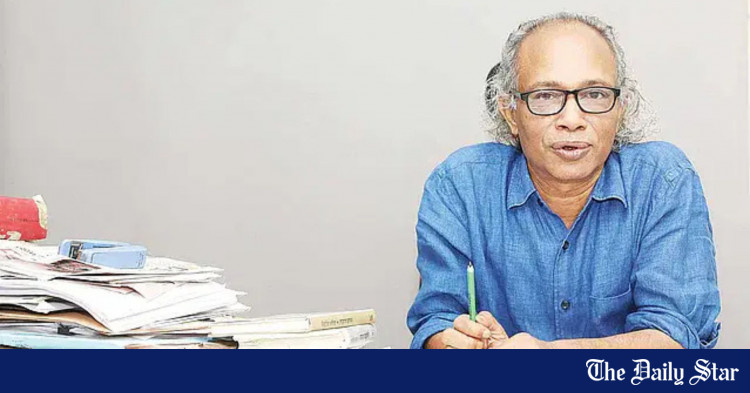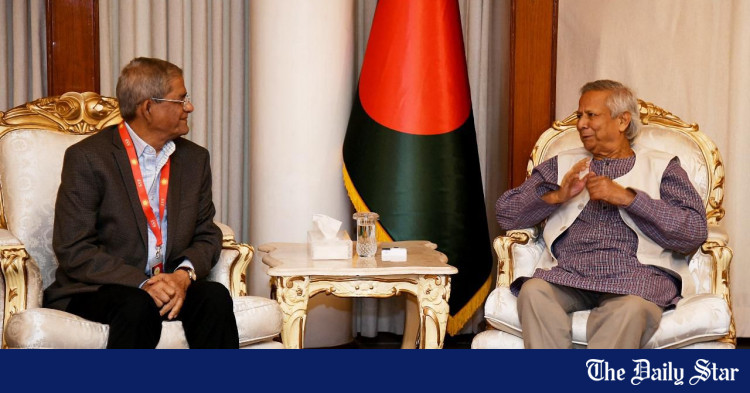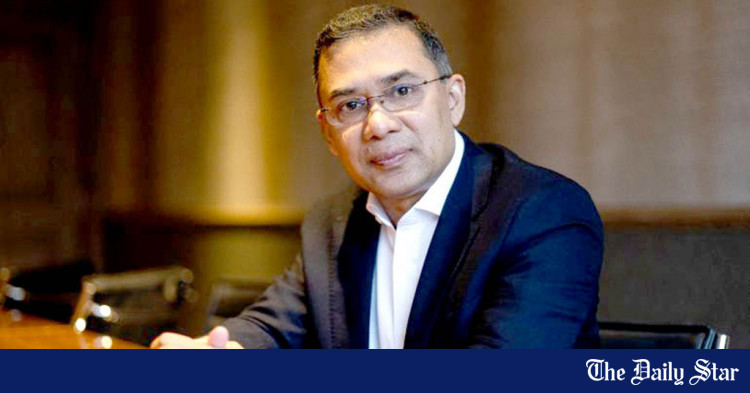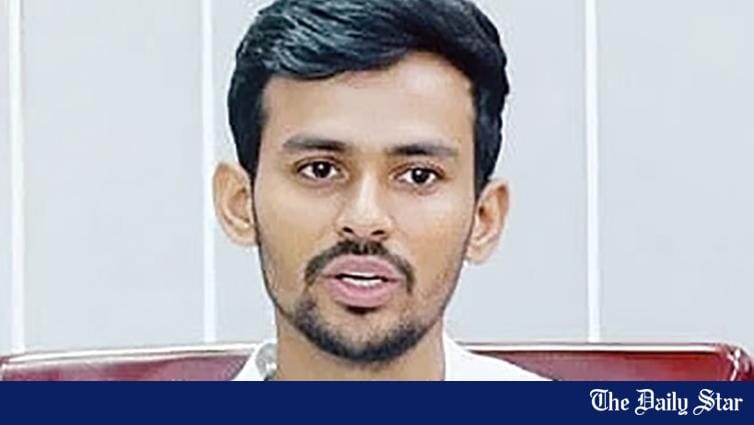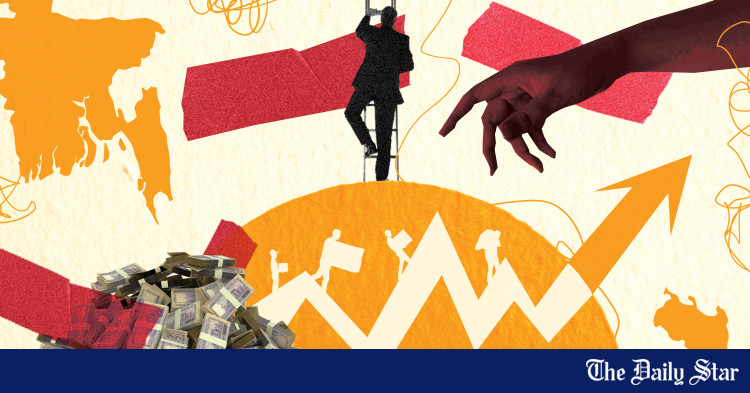- Copy to clipboard
- Thread starter
- #106
Saif
Senior Member
- Jan 24, 2024
- 11,509
- 6,442
- Origin

- Residence

- Axis Group


Hundred days of hope
It’s time we started walking away from exclusionary politics and towards inclusivity.
Hundred days of hope
100 days of the interim government

VISUAL: SALMAN SAKIB SHAHRYAR
I was far from home attending a conference when I saw the tweet from Donald Trump. He was trying to tell the world that Bangladesh was in chaos, that minority communities here were being subjected to "barbaric violence." This was the same narrative that the Indian media has been promoting all along. It reminded me of a cartoon by Debashish Chakrabarty, whose work moved many during the days of the July uprising. The cartoon tells India, "Stop acting like you've lost your colony." The US president-elect's tweet reminded me that the India media isn't going to stop its propaganda against Bangladesh anytime soon.
Recently, while addressing the nation on the 100 days of the interim government's rule, Chief Adviser Prof Muhammad Yunus has warned of deep-rooted conspiracies against Bangladesh. It's a grim reality we face every day. The murderous dictator, Sheikh Hasina, fled the country on August 5 when millions marched on the streets of Dhaka. None of the parliament members were to be found. It was as though the Awami League, which had ruled the country for over 15 years, vanished into thin air. Unfortunately, it was too late for many. By then, Hasina had claimed the lives of at least 1,500 individuals, many of them children and students.
During AL's reign, the country's economy was pushed to the brink of collapse. Money laundering reached new heights, essentially bleeding the country dry. Now, we can feel this huge amount of black money playing its part in conspiracies against Bangladesh. Sajeeb Wazed Joy, son of the former dictator, has been reported to have hired a US lobbying firm. There are also reports of a massive number of bot accounts on social media. Although the rank and file of the former ruling party have disappeared from the streets, they are still very much active online. Their role in creating divisions among the forces of the July movement and attacking prominent figures of the uprising seems well-organised. On top of that, the Indian state apparatus remains relentless in its propaganda against Bangladesh.
We must remain mindful of what is at stake. We must not forget brave souls like Abu Sayeed who gave their lives for a better Bangladesh. When we managed to overthrow the dictator, hopes understandably ran high. But now, after a hundred days, we must think practically. Because if we continue to tread down different paths leading to different visions for the nation, external forces will exploit this disunity to wreak havoc in the country. Thus, no time can be wasted in finding a common ground. Open dialogue among the forces of the uprising is paramount.
During the July uprising, the entire nation was united for one purpose alone: the ouster of Sheikh Hasina. People from all walks of life joined the movement. Different political parties, with different visions for Bangladesh's future, came together to address the immediate threat. When the edifice of AL's fascism collapsed, however, that single uniting goal was gone. For over a decade, we had lived in an environment where only a few dared to speak, and those who did were often tortured or forcibly disappeared. Now, in the newfound freedom, everyone has found their voice. There are countless gatherings and seminars across the country. People are flooding auditoriums, participating in debates about what the new nation should look like. When people speak their minds, differences of opinion naturally emerge. That is the essence of democracy—people agreeing to disagree. However, we must not lose sight of the fact that there are strong forces at play, both domestic and foreign, that would exploit any opportunity to disrupt the unity among the forces of the uprising. This is why it is crucial to find a bottom line upon which all forces can agree.
Undoubtedly, the interim government has many shortcomings. Prices have not come down as expected. Garment workers in some factories are still owed their arrears, forcing them to continue protests. Public disorder still remains a concern. These issues—to name just a few—need to be addressed as we work towards a greater unity. Improvements in these vital areas would surely enhance confidence in the interim government, paving the way for sustainable unity.
Finding the minimum to agree upon isn't that difficult. No one would question our desire for a fair electoral system that allows people to choose their leaders. People with diverse religious and cultural backgrounds participated equally in the uprising. The graffities on the walls dreamt of an inclusive Bangladesh where everyone—regardless of ethnicity, religion or political views—enjoys the same rights. Unity and equity among the people, while recognising our differences, is also something we can all agree upon. People took to the streets with the hope that the growing economic disparity would be reversed someday—another area of consensus. By holding onto this short list of achievable goals, we can remain united for the cause of Bangladesh while agreeing to disagree on the more complex issues.
We must remain mindful of what is at stake. We must not forget brave souls like Abu Sayeed who gave their lives for a better Bangladesh. When we managed to overthrow the dictator, hopes understandably ran high. But now, after a hundred days, we must think practically. Because if we continue to tread down different paths leading to different visions for the nation, external forces will exploit this disunity to wreak havoc in the country. Thus, no time can be wasted in finding a common ground. Open dialogue among the forces of the uprising is paramount.
What is happening in Bangladesh is not unique. Countries like Sudan, Egypt and Sri Lanka have all gone through similar experiences. In Sudan and Egypt, the divide between liberals and Islamists led to civil war, while Sri Lanka fared better in establishing a pluralistic society. Attempts to exclude or annihilate one's political opponents lead only to chaos, and rarely succeed. Over the past 15 years, the Awami League has done everything possible to eliminate its political opponents, which eventually only strengthened opposition. This should serve as a warning to those who continue to promote division. It's time we started walking away from exclusionary politics and towards inclusivity. If we fail to do so, fascism will inevitably return, in one form or another.
Manzur-al-Matin is an advocate of the Supreme Court and a freelance anchor at Channel 24.
100 days of the interim government
VISUAL: SALMAN SAKIB SHAHRYAR
I was far from home attending a conference when I saw the tweet from Donald Trump. He was trying to tell the world that Bangladesh was in chaos, that minority communities here were being subjected to "barbaric violence." This was the same narrative that the Indian media has been promoting all along. It reminded me of a cartoon by Debashish Chakrabarty, whose work moved many during the days of the July uprising. The cartoon tells India, "Stop acting like you've lost your colony." The US president-elect's tweet reminded me that the India media isn't going to stop its propaganda against Bangladesh anytime soon.
Recently, while addressing the nation on the 100 days of the interim government's rule, Chief Adviser Prof Muhammad Yunus has warned of deep-rooted conspiracies against Bangladesh. It's a grim reality we face every day. The murderous dictator, Sheikh Hasina, fled the country on August 5 when millions marched on the streets of Dhaka. None of the parliament members were to be found. It was as though the Awami League, which had ruled the country for over 15 years, vanished into thin air. Unfortunately, it was too late for many. By then, Hasina had claimed the lives of at least 1,500 individuals, many of them children and students.
During AL's reign, the country's economy was pushed to the brink of collapse. Money laundering reached new heights, essentially bleeding the country dry. Now, we can feel this huge amount of black money playing its part in conspiracies against Bangladesh. Sajeeb Wazed Joy, son of the former dictator, has been reported to have hired a US lobbying firm. There are also reports of a massive number of bot accounts on social media. Although the rank and file of the former ruling party have disappeared from the streets, they are still very much active online. Their role in creating divisions among the forces of the July movement and attacking prominent figures of the uprising seems well-organised. On top of that, the Indian state apparatus remains relentless in its propaganda against Bangladesh.
We must remain mindful of what is at stake. We must not forget brave souls like Abu Sayeed who gave their lives for a better Bangladesh. When we managed to overthrow the dictator, hopes understandably ran high. But now, after a hundred days, we must think practically. Because if we continue to tread down different paths leading to different visions for the nation, external forces will exploit this disunity to wreak havoc in the country. Thus, no time can be wasted in finding a common ground. Open dialogue among the forces of the uprising is paramount.
During the July uprising, the entire nation was united for one purpose alone: the ouster of Sheikh Hasina. People from all walks of life joined the movement. Different political parties, with different visions for Bangladesh's future, came together to address the immediate threat. When the edifice of AL's fascism collapsed, however, that single uniting goal was gone. For over a decade, we had lived in an environment where only a few dared to speak, and those who did were often tortured or forcibly disappeared. Now, in the newfound freedom, everyone has found their voice. There are countless gatherings and seminars across the country. People are flooding auditoriums, participating in debates about what the new nation should look like. When people speak their minds, differences of opinion naturally emerge. That is the essence of democracy—people agreeing to disagree. However, we must not lose sight of the fact that there are strong forces at play, both domestic and foreign, that would exploit any opportunity to disrupt the unity among the forces of the uprising. This is why it is crucial to find a bottom line upon which all forces can agree.
Undoubtedly, the interim government has many shortcomings. Prices have not come down as expected. Garment workers in some factories are still owed their arrears, forcing them to continue protests. Public disorder still remains a concern. These issues—to name just a few—need to be addressed as we work towards a greater unity. Improvements in these vital areas would surely enhance confidence in the interim government, paving the way for sustainable unity.
Finding the minimum to agree upon isn't that difficult. No one would question our desire for a fair electoral system that allows people to choose their leaders. People with diverse religious and cultural backgrounds participated equally in the uprising. The graffities on the walls dreamt of an inclusive Bangladesh where everyone—regardless of ethnicity, religion or political views—enjoys the same rights. Unity and equity among the people, while recognising our differences, is also something we can all agree upon. People took to the streets with the hope that the growing economic disparity would be reversed someday—another area of consensus. By holding onto this short list of achievable goals, we can remain united for the cause of Bangladesh while agreeing to disagree on the more complex issues.
We must remain mindful of what is at stake. We must not forget brave souls like Abu Sayeed who gave their lives for a better Bangladesh. When we managed to overthrow the dictator, hopes understandably ran high. But now, after a hundred days, we must think practically. Because if we continue to tread down different paths leading to different visions for the nation, external forces will exploit this disunity to wreak havoc in the country. Thus, no time can be wasted in finding a common ground. Open dialogue among the forces of the uprising is paramount.
What is happening in Bangladesh is not unique. Countries like Sudan, Egypt and Sri Lanka have all gone through similar experiences. In Sudan and Egypt, the divide between liberals and Islamists led to civil war, while Sri Lanka fared better in establishing a pluralistic society. Attempts to exclude or annihilate one's political opponents lead only to chaos, and rarely succeed. Over the past 15 years, the Awami League has done everything possible to eliminate its political opponents, which eventually only strengthened opposition. This should serve as a warning to those who continue to promote division. It's time we started walking away from exclusionary politics and towards inclusivity. If we fail to do so, fascism will inevitably return, in one form or another.
Manzur-al-Matin is an advocate of the Supreme Court and a freelance anchor at Channel 24.


